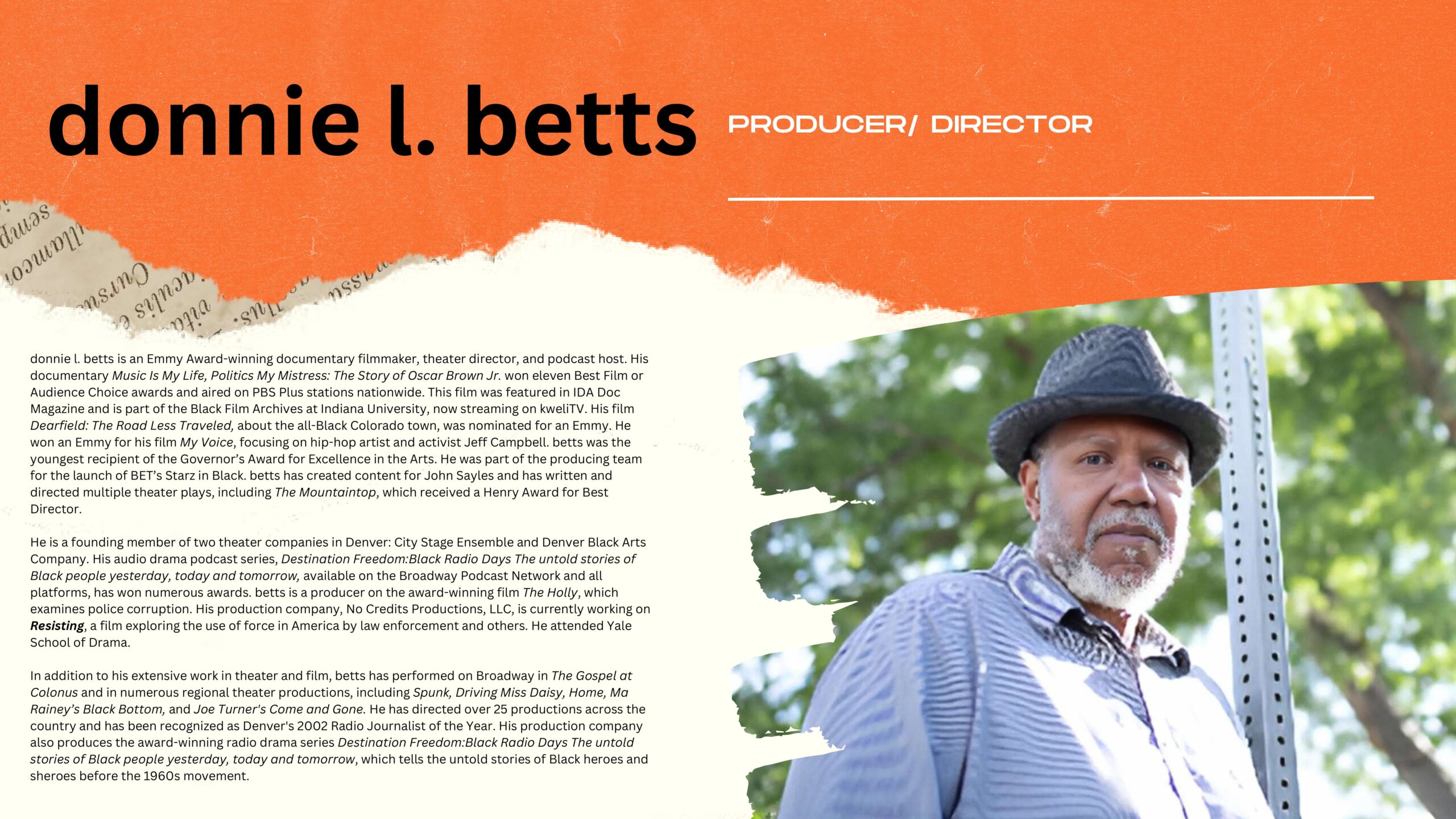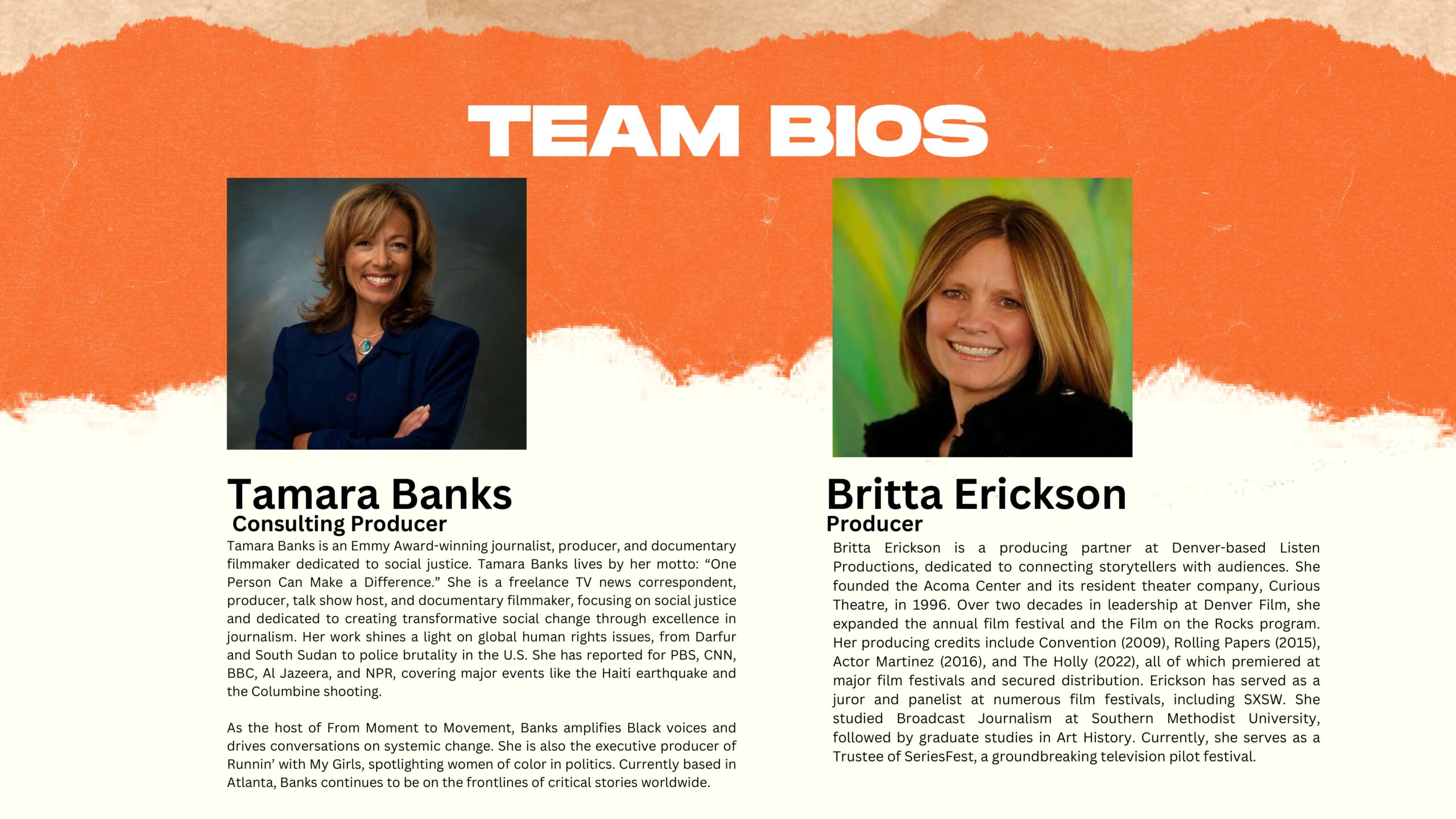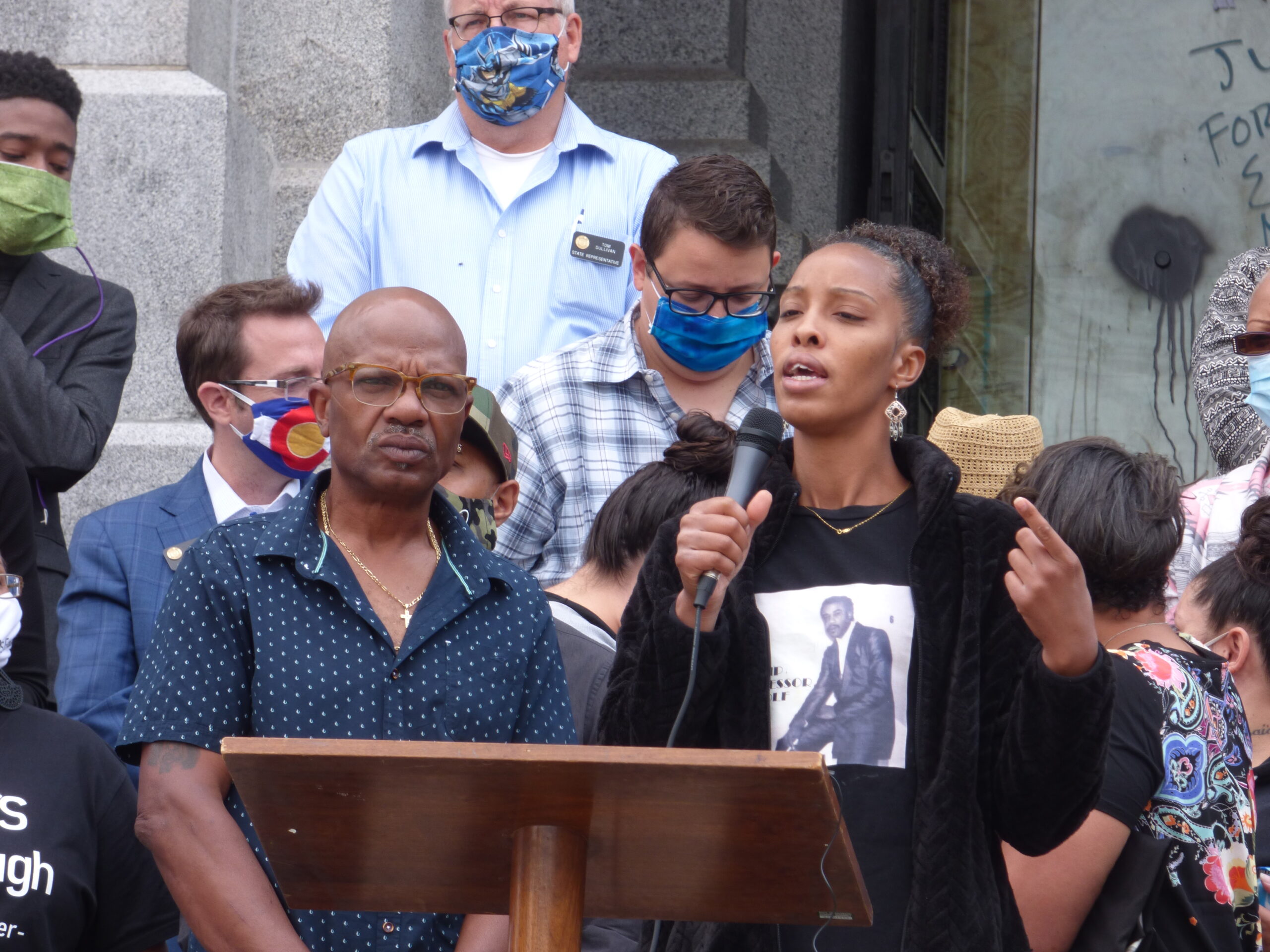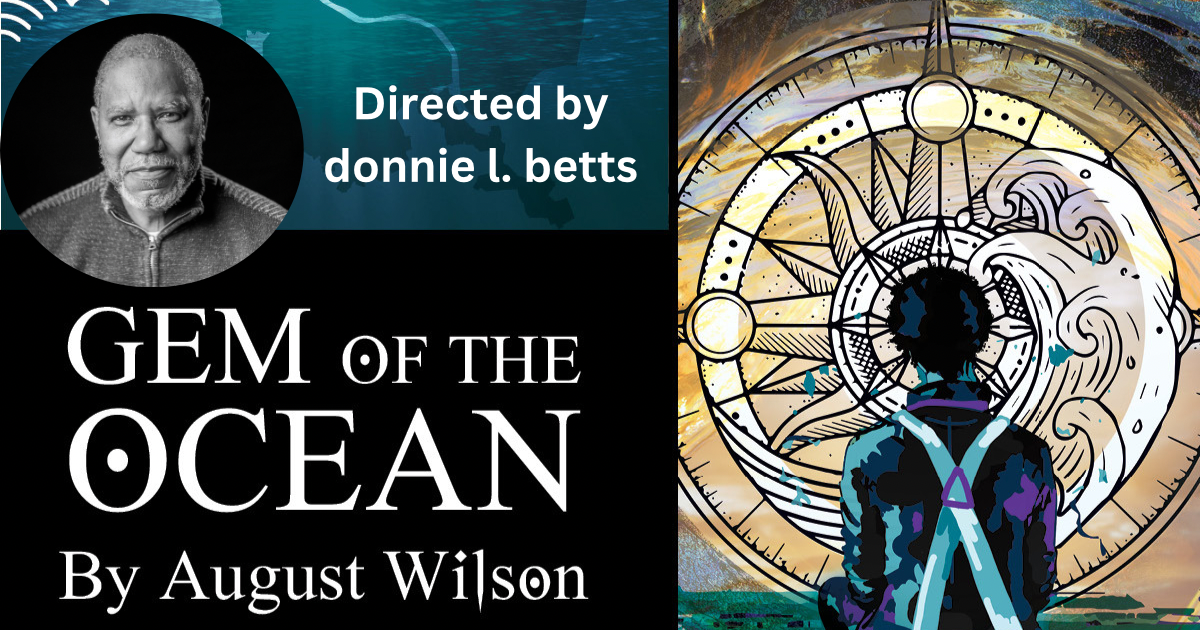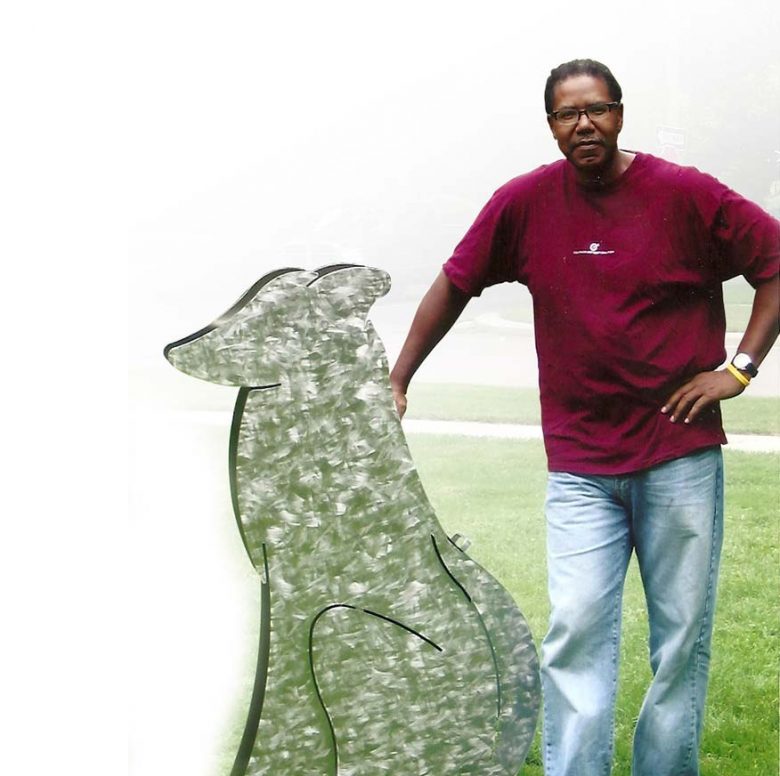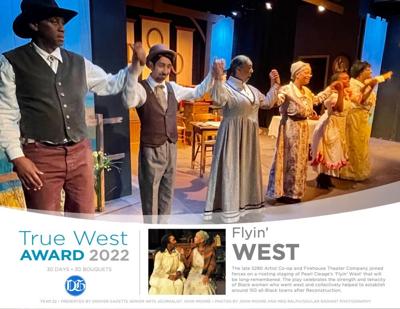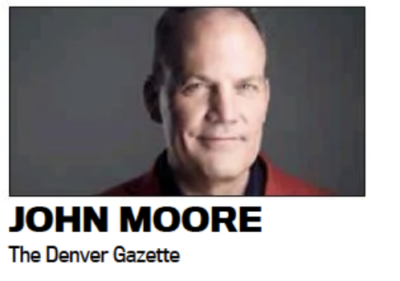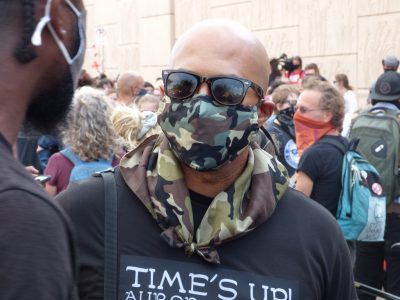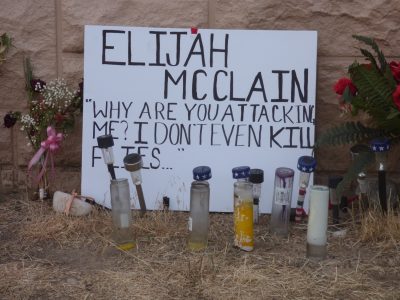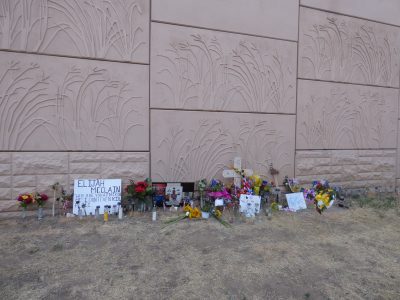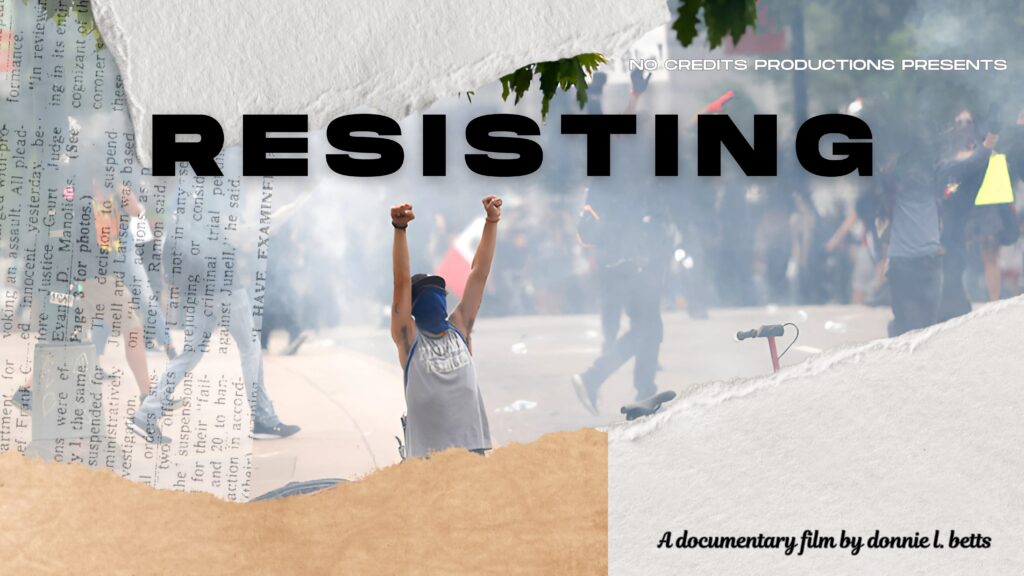No Credits Productions, LLC: Film & Video Production in Colorado
I am donnie l. betts

Experience entertainment at its finest when you watch films, videos, and plays from No Credits Productions, LLC. Our goal is to produce material that engages, educates, and elevates our audiences. The owner and founder of our production company, donnie l. betts has decades of experience in the entertainment industry as an actor, director, and producer. No Credits Productions LLC is 100% Black Owned. Support our business we produce quality work for your eyes, ears, and souls.
Whatever your needs are -- a film, video, play, or short piece -- we can achieve your goals on time and within budget. We are proud of the projects we’ve completed over the years. Our clients include Palisade Partners, History Colorado, Blair Caldwell African American Research Library, and many others. Reach out to us today for more information about the film and video production in Colorado. We’ll make your project a success!
We would love it if you would support this film. Informationa at Denverfilm.org support features Resisting
"Until the killing of black men, black mother's sons, becomes as important to the rest of the country as the killing of a white mother's sons, we who believe in freedom cannot rest until this happens."
Questions that need to ask, Why have we historically faced this crisis? There are no easy answers however we have to look at other failures. The crisis in policing is the culmination of a thousand other failures—failures of education, social services, public health, gun regulation, criminal justice, and economic development. Police have a lot in common with firefighters, E.M.T.s, and paramedics: they’re there to help, often at great sacrifice, and by placing themselves in harm’s way. To say that this doesn’t always work out, however, does not begin to cover the size of the problem. “Stop Resisting” will be told in three acts: 1) Historical – the inception of policing in the United States via slave patrols, Jim Crow, etc. What were slave patrols, here is from historian Gary Potter.“
(1) to chase down, apprehend, and return to their owners, runaway slaves; (2) to provide a form of organized terror to deter slave revolts; and, (3) to maintain a form of discipline for slave-workers who were subject to summary justice, outside the law.”
2) Present – the over-policing of marginalized communities, escalating use of force, the influence that of District Attorneys and police unions have on policing, and the lack of transparency in policing practices and accountability. A major focus of part 2 will be the personal stories of families impacted. For example: Alexander Landau was beaten almost to death by the Denver Police Department. His crime: asking for a warrant. The Michael Marshall family will contribute their story. Michael Marshall was choked and killed on camera in a Denver jail by Denver Sheriff Deputies. His crime: he couldn’t post a $100 bond. The Bonner family, Bobby, and Brenda Bonner will be interviewed about their son Jamaal, who was shot three times in the back while laying face down on the floor of a small motel room in Aurora. His crime: none. No officers have faced any charges for these crimes.
3) Future of policing, specifically the mental health cost, financial cost to cities, and long-range trauma. This section will wrap up the need for – reform, reset, and rethinking policing in communities.
We are tired of hashtags and justice for none. This documentary goes beyond the tag lines, the news highlight reels, and the investigative journalism frenzy. “Stop Resisting” brings forward the visceral stories, from across America, told by the heartbroken families of brutalized and murdered victims of police violence. We tie together the tragedies at a personal level and the systemic oppression of communities that have been marginalized by the misuse of power in our law enforcement agencies, from the bottom up. However, this film will also explore the hope that communities and law enforcement have for the future of policing.
Stop Resisting” will utilize a multitude of visual elements including the use of family photos of victims and survivors, cell phone footage, animation as transitions mural art, audio soundscape, dance, and spoken word as mediums of expression. To produce this film, at this time, fills an urgent need: as a local and global community, we are grappling with the impact of racism, inequality, and the resulting dissension and unrest. We will discuss the mental health multiple negative impacts that stem from the use of force on the community, on families, the cost to cities and their citizens, and on the police locally and nationally. How many more people have to die before we have the moral backbone to say no more? This has to stop.
I have a true personal stake in this topic as a person of color I feel that I share a personal connection with the families included in the film. I saw firsthand what this abuse of power does to a family (my own) when I was 8 years old seeing my father severely beaten by deputies. I also saw my mother handcuffed in the 100-degree heat in Texas for hours. Those images are still with me some 60-plus years later. This makes me uniquely qualified to bring the humanity, expertise, and impact necessary to produce this film. One in 1,000 Black men in America can expect to be killed by a police officer. I am a grandfather to three young Black boys, I think about the entire generations that have been taken away from their futures, never to sit at a holiday dinner nor go on to raise their own children. I don't want this for my family or anyone else. Qualified immunity shields police and government officials from liability by requiring proof that an official violated “clearly established law” – putting the burden on victims to find an identical court case that found the action unconstitutional. This key element of the architecture of impunity amplifies police power and keeps them above the law and disproportionately impacts those targeted by law enforcement: people of color, Black people, Indigenous people, people with disabilities, unhoused individuals, and LGBTQ+ individuals. The film will feature an open and honest dialogue between law enforcement and the community, including multiple community members who have been directly impacted by the use of force. Specifically, we will highlight the long-term mental health impacts and financial, psychological, and moral effects that police violence has, including PTSD, depression, divorce, etc. “Stop Resisting” will reach white communities and/or allies to educate and inspire them toward holding policymakers, police, and community members accountable. Escalating the use of force by representatives of the law, against community members, affects us all.



